NEXT, THE NEWS:
TEEN WHO WATCHED SISTER FIGHT FOR LIFE IN THE NICU FOUNDS PRO-LIFE GROUP: 'HOW CAN I NOT DO ANYTHING ABOUT THIS?'
from: LiveAction News
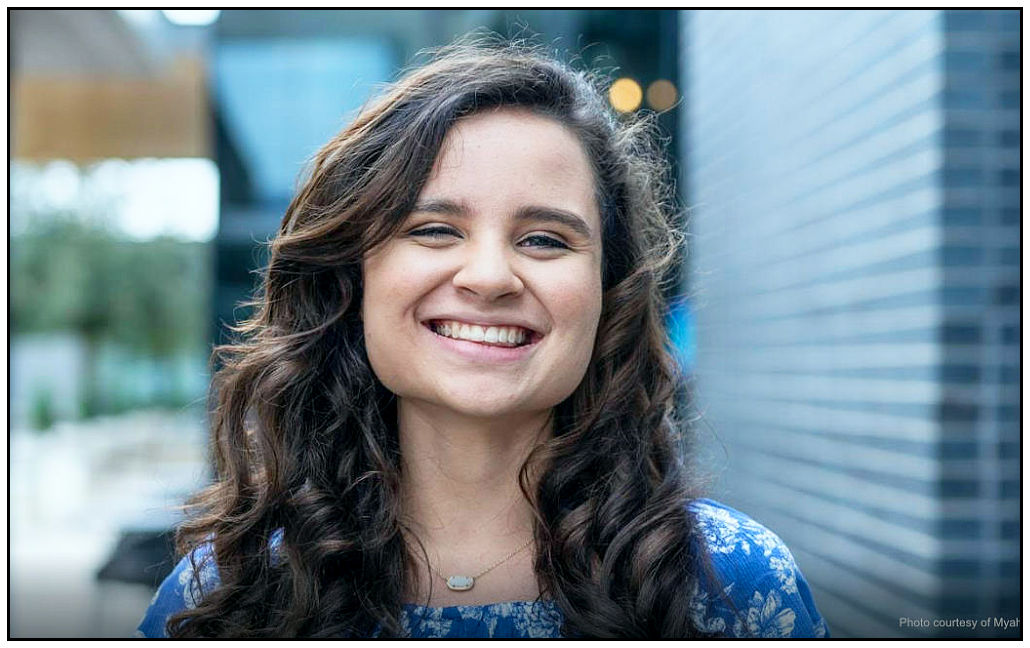 (26 Feb.) Myah Abraham was the second oldest of nine children growing up in a conservative, Christian family – but a harrowing experience truly cemented for her the need to fight to protect every life, especially the most vulnerable.
(26 Feb.) Myah Abraham was the second oldest of nine children growing up in a conservative, Christian family – but a harrowing experience truly cemented for her the need to fight to protect every life, especially the most vulnerable.
Myah sustained her faith from not just her family life, but from the strong Christian community in the Houston area where she lived. In 2016, when Myah’s mother was pregnant, the family learned she was pregnant with a girl. Myah had five brothers and one sister already, so she was especially excited to meet another sister. But her mother unexpectedly developed preeclampsia and was advised to stay in the hospital where she could be closely observed.
One day, the monitors went off and the doctors couldn’t detect the baby’s heartbeat. “It was a heartbreaking time for us. Doctors expected the baby to be stillborn, but instead, she was born prematurely at 30 weeks and ended up in the NICU," Myah told Live Action News. “She was so fragile and small she could fit into the palm of my hand. At one point, she lost about seven ounces and was only two pounds. I remember my dad putting his wedding ring on her arm and it slid all the way up to her shoulder."
The experience was a turning point for young Myah. As she watched the premature babies in the NICU fighting for their lives, their teeny legs flaying, she felt a fire ignite inside of her. She’d always had a pro-life stance, but now, she wanted a more active role in fighting for the sanctity of life. “I realized that these tiny human beings could obviously feel pain, they were aware of the world around them," she said. “Seeing them squirm and cry I thought, how can I not do anything about this?"
As her sister grew into a thriving toddler, Myah began to explore ways to get involved in the pro-life community. But it wasn’t easy. She discovered there was no youth-centered pro-life presence in her community. Nobody in her circle of friends seemed to be especially interested in the pro-life movement and the few that were suffered backlash. Equally troubling was the fact that pro-life advocates were portrayed in high schools as intolerant and hateful. But that didn’t deter Myah.
"Being vilified for my pro-life views wasn’t going to stop me in my fight for life. I thought, bring it on, because I wanted to take a stand for life in my community, and I would find a way to do so somehow," she said.
Inspiring other teens
While attending a conference in Kansas, she learned about Dr. Bernard Nathanson, an OB/GYN and abortionist who was once dubbed the “Abortion King" because he committed 75,000 abortions. He was the co-founder of the pro-abortion group now known as NARAL Pro-Choice America before he became pro-life. Myah was stunned to learn how the abortion industry adopted his strategies to target young people. But she was also moved by his transformation from abortionist to pro-life advocate, and by his efforts to expose the lies of the abortion industry. She returned home with a renewed determination to challenge teens in her community to get involved in the pro-life movement. To do this, she founded her own group – GreatLifeTeens.
"Here I was just a young teen, posting videos on YouTube to get the word out," she said. "I wanted to inspire teens to get involved locally at a grassroots level." [read more...]
COMMENTARY: Myah is indeed an inspiration for all of us, not only for teens. We may think – "This situation is just too big for me to handle, I can't do anything about it." But always remember the saying – "I can do something. I can't do everything. But that's not an excuse to do nothing."
An email from Live Action just arrived, stating – "Legislators in Maryland just proposed a bill that would effectively decriminalize infanticide – death by neglect – up to 28 days after birth. And, legislators in Colorado just proposed a bill that could force pro-life doctors to perform abortions and would allow them to leave a newborn baby to die if the mother wishes. In short, our country is moving towards a radical, legal acceptance of infanticide." We need to take action, DO SOMETHING right away, we must not do nothing!
RUSSIAN DOCTORS PLEAD FOR END TO WAR
from: BioEdge.org
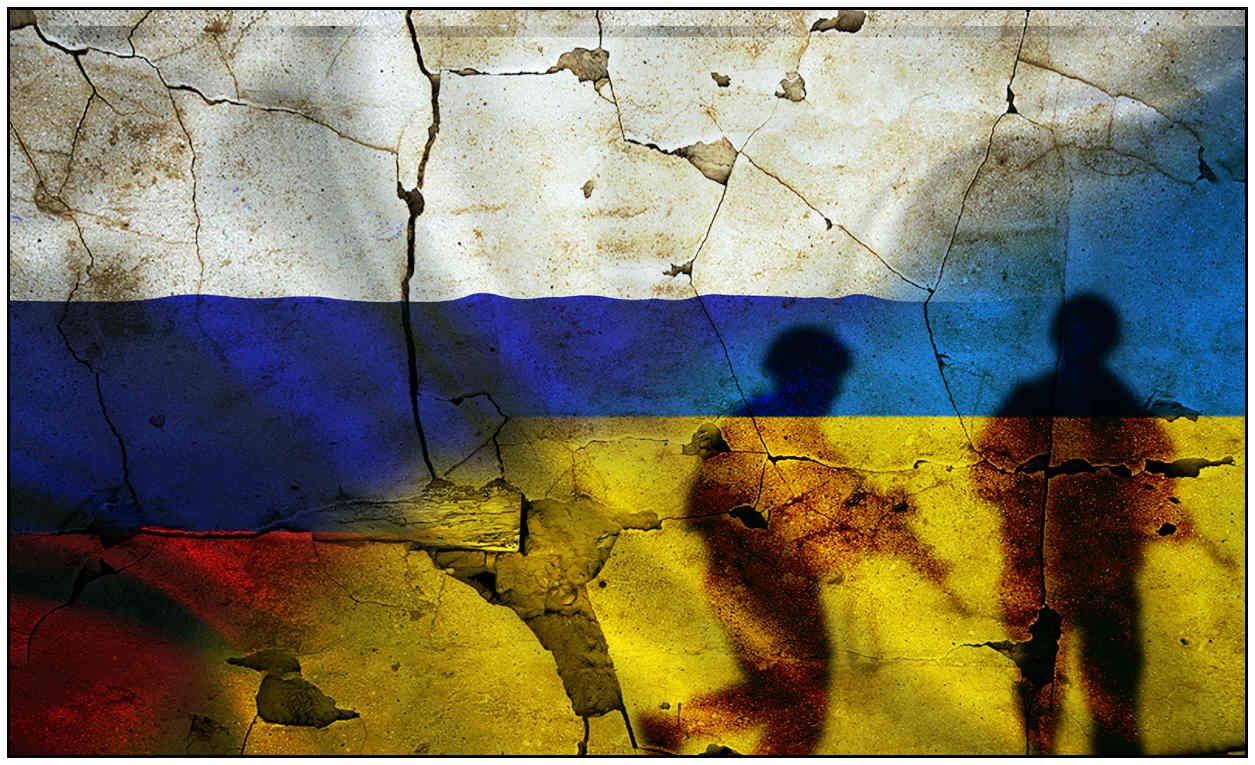 (6 Mar.) Thousands of Russian doctors, nurses and other healthcare workers have signed an open letter to President Vladimir Putin urging him to put an end to war in Ukraine. According to BMJ, as of February 28, 15,000 people had signed the letter. It reads:
(6 Mar.) Thousands of Russian doctors, nurses and other healthcare workers have signed an open letter to President Vladimir Putin urging him to put an end to war in Ukraine. According to BMJ, as of February 28, 15,000 people had signed the letter. It reads:
We, Russian doctors, nurses and paramedics, strongly oppose the military actions carried out by Russian armed forces on the territory of Ukraine. We are not looking for the guilty and we do not judge anyone. Our mission is to save human lives. It is difficult to imagine a profession more humane than a doctor. And now, at this difficult time for both countries, we call for an immediate cessation of hostilities and for the resolution of all political issues exclusively by peaceful means.
As always, we do not divide the people into friends and foes. We swore to help any human, regardless of nationality, religion or political views. But today our help is not enough. The war will take many lives and cripple so many destinies that we will not have time to help despite all possible efforts. Everyone will scream in pain and crying out to mothers in the same language. Any projectile or bullet, even if it does not reach its target and does not take someone's life, still brings fear, panic and pain. Pain which contracts hearts. Everyone's heart is hurting now. Civilians'. Soldiers'. Soldiers' mothers and wives. Children's. Nobody deserves this fear. Nobody deserves to be killed or injured. Accidentally or intentionally.
Our relatives, friends, patients and colleagues are located on the attacked territories. There is not a single person among them who would benefit from the ongoing bloodshed. We cannot stay away from pain and suffering, which are increasing every minute.
Human life is priceless. It takes a moment to be killed [or disabled] in action, while the treatment and recovery of the victims can take years. And for the moments of today's war, we will pay for many years after. No matter how the use of lethal weapons is justified, they remain deadly. Deadly and causing pain and suffering. Therefore, following our oaths and maintaining a humane and equal treatment of all lives, we demand an immediate suspension of all operations with the use of lethal weapons. [read more...]
COMMENTARY: Thousands of anti-war protesters in Russia have been arrested and detained by police and security forces. Now 15,000 medical professionals have put their names to this letter to Vladimir Putin: how long before they too are arrested? In the fog of war, truth is the first casualty – we need to research each claim before believing and repeating it. But this report checks out and many other reports tell us that nearly half of Russia's population is opposed to this invasion of Ukraine.
BELARUS: SOLDIERS' MOTHERS DETAINED FOR PRAYERS FOR END TO WAR ON UKRAINE
from: Forum 18 News Service
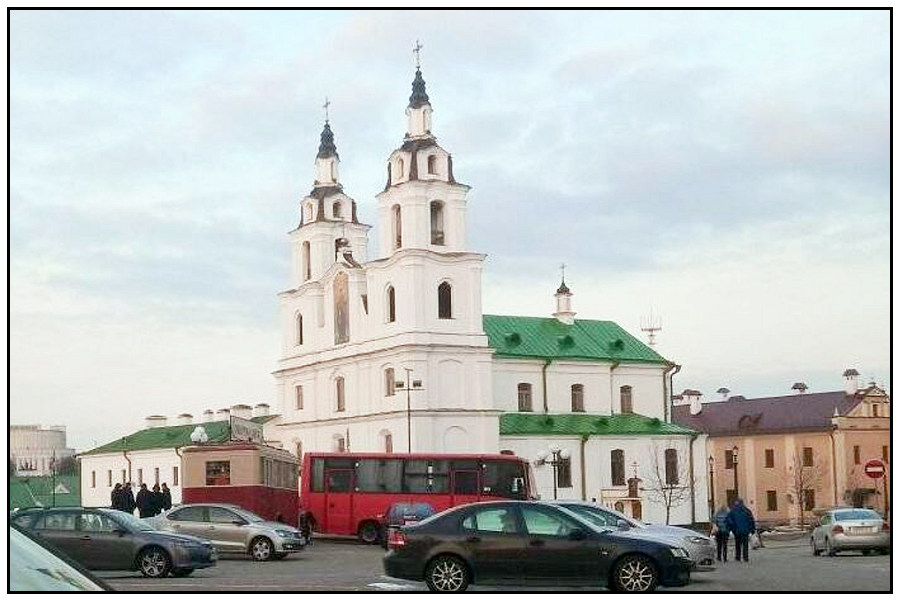 (9 Mar.) Police in Minsk refused to say why they and OMON riot police were present in and around the city's main Orthodox cathedral on 3 March when about 100 soldiers' mothers attended regular evening prayers to pray for peace in neighbouring Ukraine. Officers checked the identity and photographed some of them before the service. Afterwards they detained four and questioned them at Central District Police Station for four hours. Police came the following day to the home of a fifth, but she was not at home. It remains unknown if the women will face punishment. A journalist and her husband were detained at the cathedral and jailed for 15 days.
(9 Mar.) Police in Minsk refused to say why they and OMON riot police were present in and around the city's main Orthodox cathedral on 3 March when about 100 soldiers' mothers attended regular evening prayers to pray for peace in neighbouring Ukraine. Officers checked the identity and photographed some of them before the service. Afterwards they detained four and questioned them at Central District Police Station for four hours. Police came the following day to the home of a fifth, but she was not at home. It remains unknown if the women will face punishment. A journalist and her husband were detained at the cathedral and jailed for 15 days.
Riot police in the capital Minsk detained four mothers of soldiers for attending prayers for peace at the city's main Orthodox cathedral. They were among about 100 soldiers' mothers who attended regular evening prayers on 3 March at Holy Spirit Cathedral. Officers detained the women despite the pleas of the priest for them not to do so. The four women were freed after about four hours. Police came the following day to the home of a fifth woman who had prayed at the cathedral, but she was not at home. It remains unknown if the women will face punishment.
About 100 mothers of young men serving in Belarus' armed forces attended the regular evening prayer service on 3 March at the Orthodox Holy Spirit Cathedral in central Minsk. They came to pray in front of the icon of the Mother of God for an end to the war in neighbouring Ukraine, which Russia launched on 24 February, partly from the territory of Belarus.
OMON riot police and ordinary police were already waiting for the mothers when they arrived for the 6 pm service. "We went into the church, they followed us," the Union of Mothers Telegram channel noted. "Before going in they demanded our documents and photographed us." Plain clothes officers were present in the cathedral during the service.
Afterwards, despite the pleas of the priest who had led the service, officers took four of the women to Minsk's Central District Police Station. When the duty officer asked colleagues who they were, he was told: "Four women from the cathedral." Officers questioned the four women for several hours before releasing them. "True, on leaving they warned us of the consequences of unapproved meetings. I no longer had strength to argue that prayer is not a meeting," one of the women noted.
Just before the service started, police arrested journalist Dziana Seradzyuk and her husband as they were coming out of the cathedral. It remains unclear if officers thought they were planning on attending the prayer service. Minsk's Central District Court jailed both the following day for 15 days. [read more...]
COMMENTARY: I've been reporting since 2014 on the issues concerning Russia's and Ukraine's disagreements over which country should control their Orthodox churches and territories inhabited by many Russian-speaking people. Most Orthodox people want peace between their countries and Russia but the ROC hierarchy allows itself to be used as a mouthpiece for restoring the Russian empire. Bear in mind that although the capital cities, Donetsk and Luhansk, have majorities of Russian speakers, the provinces of Donetsk and Luhansk have Ukrainian majorities, so Russia's claim that those provinces should belong to Russia are untrue, as is the claim that Ukraine has historically been part of the Russian Orthodox Church's territory – just the opposite is true: Russia by force took over the Metropolitanate of Kyiv where Orthodoxy was first planted among the people of ancient Rus in AD 988.
PRIVATE EQUITY TAKES AIM AT DISABILITY SERVICES
from: Disability Scoop
 (4 Mar.) Private equity firms are increasingly investing in services for young people with autism, intellectual and developmental disabilities with potentially troubling consequences, a new report warns. The firms, which aim to maximize profits quickly, are buying up companies in all types of behavioral services, a field that has traditionally been left to nonprofits.
(4 Mar.) Private equity firms are increasingly investing in services for young people with autism, intellectual and developmental disabilities with potentially troubling consequences, a new report warns. The firms, which aim to maximize profits quickly, are buying up companies in all types of behavioral services, a field that has traditionally been left to nonprofits.
In addition to disability services, private equity is taking over programs catering to youth in foster care, the juvenile justice system and troubled teen programs, according to an analysis by the Private Equity Stakeholder Project, a nonprofit that works to shine a light on the industry.The report includes a listing of more than 60 service providers — many of which operate in multiple states — that have been purchased by private equity firms since 2006.
Private equity has a track record of reducing staff, using unlicensed staff, providing inadequate training, low pay, overlooking maintenance and other cost-cutting measures that can lead to abuse and unsafe conditions, the report says, citing cases where youth were left in “horrific conditions” while private equity owners raked in profits.
For example, the Private Equity Stakeholder Project notes that Centerbridge Capital and the Vistria Group have taken in nearly $500 million in debt-funded dividends in just two years of owning The Mentor Network, which provides foster care as well as residential and community services to children and adults with intellectual and developmental disabilities. This comes even as the company – which as of September is now called Sevita – has faced “numerous allegations of widespread abuse, neglect, and deaths” over the last two decades.
“Private equity firms often aim to double or triple their investment over 4-7 years. The pursuit of these outsized return expectations over relatively short time horizons can lead to cost-cutting that hurts care,” the report states. “Limited regulation of youth behavioral services coupled with the private equity playbook of maximizing profit over short time horizons raises profound concerns about the increasing investment by private equity firms in the sector.”
Similar trends are now underway in the field of autism services, which has seen an uptick in private equity investing especially in applied behavior analysis providers since 2017, according to the report. In what’s believed to be the largest such sale, The Blackstone Group bought the Center for Autism and Related Disorders in 2018 for a reported $700 million. The report includes a listing of more than 60 service providers – many of which operate in multiple states – that have been purchased by private equity firms since 2006.
Private equity has a track record of reducing staff, using unlicensed staff, providing inadequate training, low pay, overlooking maintenance and other cost-cutting measures that can lead to abuse and unsafe conditions, the report says, citing cases where youth were left in "horrific conditions" while private equity owners raked in profits.
For example, the Private Equity Stakeholder Project notes that Centerbridge Capital and the Vistria Group have taken in nearly $500 million in debt-funded dividends in just two years of owning The Mentor Network, which provides foster care as well as residential and community services to children and adults with intellectual and developmental disabilities. This comes even as the company – which as of September is now called Sevita – has faced "numerous allegations of widespread abuse, neglect, and deaths" over the last two decades.
"Private equity firms often aim to double or triple their investment over 4-7 years. The pursuit of these outsized return expectations over relatively short time horizons can lead to cost-cutting that hurts care," the report states. "Limited regulation of youth behavioral services coupled with the private equity playbook of maximizing profit over short time horizons raises profound concerns about the increasing investment by private equity firms in the sector."
Similar trends are now underway in the field of autism services, which has seen an uptick in private equity investing especially in applied behavior analysis providers since 2017, according to the report. In what’s believed to be the largest such sale, The Blackstone Group bought the Center for Autism and Related Disorders in 2018 for a reported $700 million. [read more...]
COMMENTARY: My wife and I have seen with our own eyes how for-profit investment companies buy up nursing homes and milk them for all the profit they can squeeze out of them, often resulting in reduced and poorly-qualifed staffing. The Church needs to recover its ministry to "the poor, the lame, the maimed, and the blind" while we still have time to do it.
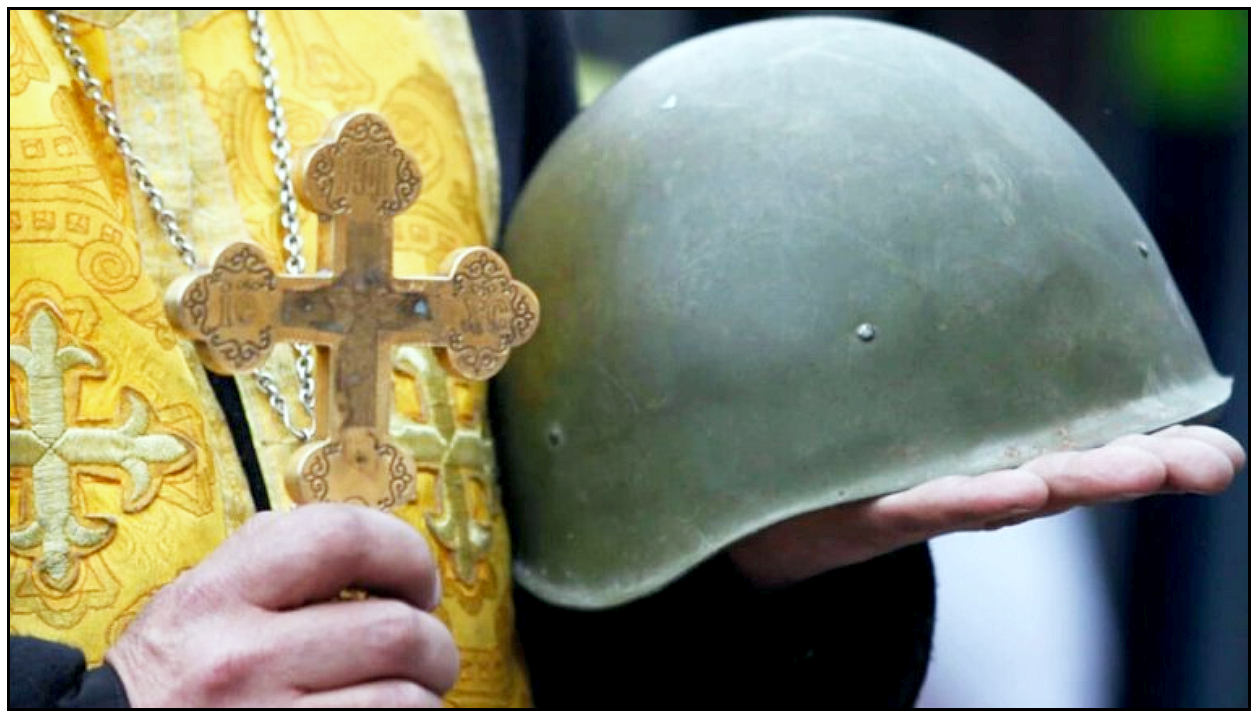 (8 Mar.) Russia's offensive in Ukraine since February 24 "is a shock to all churches,” explains Pavlo Smytsnyuk, the director of the Ecumenical Institute of Lviv, western Ukraine. "They are therefore forced into a form of creativity to cope with the crisis."
(8 Mar.) Russia's offensive in Ukraine since February 24 "is a shock to all churches,” explains Pavlo Smytsnyuk, the director of the Ecumenical Institute of Lviv, western Ukraine. "They are therefore forced into a form of creativity to cope with the crisis."
Faced with the Russian offensive, the local churches are united and show "creativity," assures Pavlo Smytsnyuk, the director of the Ecumenical Institute of Lviv, in western Ukraine, a predominantly Catholic city. He is currently traveling through the United States and is in daily contact with his Ukrainian, Catholic and Orthodox interlocutors. He returns to the turmoil caused by the war in Ukraine, which in particular questions the affiliation of many Ukrainian Orthodox parishes to the Moscow Patriarchate.
How have the churches in Ukraine reacted since the start of the offensive?
This is a shock to all churches, who are therefore forced to use some form of creativity to face the crisis. They all condemned this attack, each with their own statement. There was also a strong statement from the All-Ukrainian Council of Churches and Religious Communities, including Jews and Muslims. All these bodies defend the integrity of Ukraine. We have never seen such solidarity between churches in Ukraine.
They also adapt to the practical level. The Kiev Greek Catholic Seminary, where I teach, went into exile in Lviv, with the students from central and eastern Ukraine, subject to the most intense fighting. For the time being, priests and seminarians have not been forced into general mobilization.
Will this war change the already complex landscape of Orthodoxy in Ukraine?
I believe so, because we find that the Patriarch of Moscow, Kirill, and the Primate Onuphry, the metropolitan of the Ukrainian Orthodox Church who remains under Moscow's jurisdiction, are not saying the same thing. The Patriarch of Moscow sends ambiguous messages. He asked not to reach the civilians, but is not denouncing the war. When he defends "the unity of holy Russia," he uses the same language as Putin and Lukashenko.
On the contrary, Onuphry condemned the war by explicitly asking Putin to stop the offensive. This is a big change because his church has always emphasized this idea of "Russkiy Mir," of the "Russian world," with the idea of a civilization united by a single culture. She is going through a crisis moment. [read more...]
COMMENTARY: Other RISU articles explain that many UOC-MP parishes are refusing to commemorate Patriarch Kirill and many have also moved from the UOC-MP to the new, "autocephalous"/independent OCU (Orthodox Church of Ukraine) due to Russia's invasion of Ukraine. It seems that V. Putin's invasion might just backfire on him.
ACCESSIBLE TOURISM SUMMIT HIGHLIGHTS NEED OF 1 BILLION PEOPLE WITH DISABILITIES
from: Disabled World
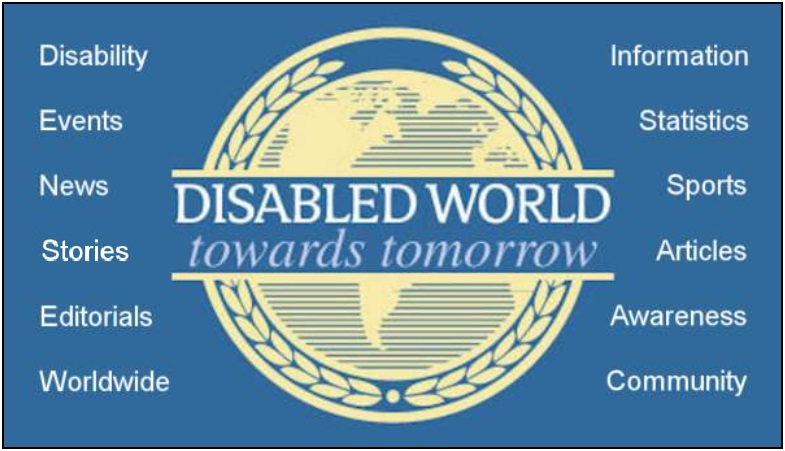 (12 Jan.) Accessible tourism summit calls for global cooperation for inclusion of people with disability and recommends initiatives. The summit comes in the wake of fast return to recovery of the travel and tourism sectors, after the catastrophic effects of Covid-19 on these two sectors worldwide, to discuss the challenges facing the industry at the present time and the lessons learned from the crisis, especially with regard to tourists of determination. The summit recommended 20 measures for smooth travel for travellers of determination to face challenges faced by people of determination in terms of movement, residence and travel worldwide.
(12 Jan.) Accessible tourism summit calls for global cooperation for inclusion of people with disability and recommends initiatives. The summit comes in the wake of fast return to recovery of the travel and tourism sectors, after the catastrophic effects of Covid-19 on these two sectors worldwide, to discuss the challenges facing the industry at the present time and the lessons learned from the crisis, especially with regard to tourists of determination. The summit recommended 20 measures for smooth travel for travellers of determination to face challenges faced by people of determination in terms of movement, residence and travel worldwide.
The Dubai Accessible Tourism International Summit, opened in Dubai on January 12, 2022, called for joint international cooperation to make service facilities such as airports, airlines, hotels, various means of transportation and communication, websites, shopping malls and other facilities and services friendly to People of Determination whose number is expected to double to 2 billion by 2050 from the current one billion, according to the statistics of the World Health Organization. [read more...]
COMMENTARY: It is not only the tourism industry (hotels, airports, restaurants, etc.), but also all types of housing and business that both need and would profit by accomodating "People of Determination" (named thus in recognition of their achievements in different fields) – that is, people with "disabilities" or "different abilities." Why is it that we unthinkingly write off or ignore these people? I believe it's a subconscious bias against them because we do not want to face the possibility of our own disability, becoming old and frail, and death. At present, these people are often confined to their homes or care facilities because the infrastructure is not built to accomodate them. Thus, we we ignore them because we rarely see them.
How much more expensive would it be to have ramps to enter buildings and to go between floors instead of sidewalks and stairs? How much harder would it be to construct doorways 3 feet wide instead of 30 inches or less that do not allow some wheelchairs to pass through, and use door handles instead of doorknobs? How much more difficult would it be to build bathrooms and other toilet facilities with showers with built-in seats instead of bathtubs, toilets high enough to get up from, grab bars to stabilize oneself when transfering from shower or toilet to standing or to a wheelchair? None of these changes are very costly, but the increased value of our built environment and society would be immense, enabling many people with disabilities to live at home instead of in an extended care facility!
NOW, OUR VIEWS:
Weapons Of Financial Destruction And The New World Disorder
 As I wrote earlier here, in the fog of war truth is often the first casualty. People come up with the strangest predictions and wild conspiracy theories. We simply don't know, we can't know, what the outcome of Russia's invasion of Ukraine will be. But the article Weapons Of Financial Destruction And The New World Disorder just might give us some insight into what could likely be the outcome of this conflict.
As I wrote earlier here, in the fog of war truth is often the first casualty. People come up with the strangest predictions and wild conspiracy theories. We simply don't know, we can't know, what the outcome of Russia's invasion of Ukraine will be. But the article Weapons Of Financial Destruction And The New World Disorder just might give us some insight into what could likely be the outcome of this conflict.
The author, David C. Hendrickson, is professor emeritus of political science at Colorado College. Here's an excerpt: "The comprehensive sanctions the United States and the West have imposed on Russia take us into an entirely new world. The sanctions are multidimensional, but most important is the “freezing” of Russian foreign exchange reserves, what President Biden called Putin’s $630 billion war fund in his State of the Union. This action means that all previous economic contracts between Russia and the West are invalid."
The article goes on to explain that it happened "against the backdrop of a worldwide crisis in supply chains. That is about to get a lot worse. Among the cascading dominos: 30 percent of the world's wheat exports [i.e., from Russia and Ukraine] are now cut off. Russia's exports of fertilizers – 18 percent of the potash market, 20 percent of ammonia exports – are off market. Energy prices have exploded. A suddenly bipartisan United States has imposed a (mostly symbolic) ban on Russian oil imports." Where will the poorer nations of the world turn for oil, wheat and fertilizer? How many millions of their people might die of starvation? And for the more prosperous nations, what will be the inflationary impact on prices? How will the poor among us in the West survive?
Perhaps more importantly, where will Russia turn to sell its gas, oil, and wheat, now that the West won't buy those commodities? China is quietly siding with and building economic relations with Russia. China needs more wheat, fertilizer, gas, and oil to feed its people and power its economy and produce goods for the rest of the world. So the West's embargos and tariffs on Russian goods will likely drive these two nations closer and create out of the two a much greater economic powerhouse than China is by itself. In addition, if poorer nations are forced to choose between Western sanctions and feeding their populations, might they decide to use another currency such as the Chinese yuan instead of the U.S. dollar as a means of exchange?
Ever since I was lecturing during the late-1990s at Mari State University in Russia, I have said that if the U.S. dollar loses its position as the world's reserve currency, all those trillions of dollars floating around in world markets would come home to roost, causing even greater economic woes: massive inflation in the U.S. and elsewhere. So this conflict in Ukraine might not only backfire on V. Putin, but also on the West.
(Get this as a separate page at ARC-News-blog.blogspot.com).
I had one brother, the oldest, and four sisters: two of the sisters were older than I and two were younger. Marilyn was just 1.5 years older than I, so she was closest in age to me. She married Russ, a tall and handsome airforce jet engine mechanic, just a year after her graduation from high school. Then Russ was transferred and they moved to Cape Canaveral, Florida, where he worked on missile engines. After discharge, he got a job with Delta Airlines as a jet engine mechanic. But breathing in all those fumes from cleaning solutions disabled him with chronic fatigue syndrome. Marilyn passed away in mid-2020 during the peak of Covid-19 from heart failure and infection after having pacemaker surgery. Russ' health had been failing but he held on for years.
This January, my brother Jim passed away from Parkinson's and Covid-19; a few years ago, my next-younger sister's husband Jon passed away, then Marilyn and now her husband are gone. As we age, our physical strength and immune system weaken and we become frail. Parts wear out: back, knees, heart, lungs, etc. "Therefore we don't faint, but though our outward man is decaying, yet our inward man is renewed day by day. For our light affliction, which is for the moment, works for us more and more exceedingly an eternal weight of glory" (2 Corinthians 4:16-17).

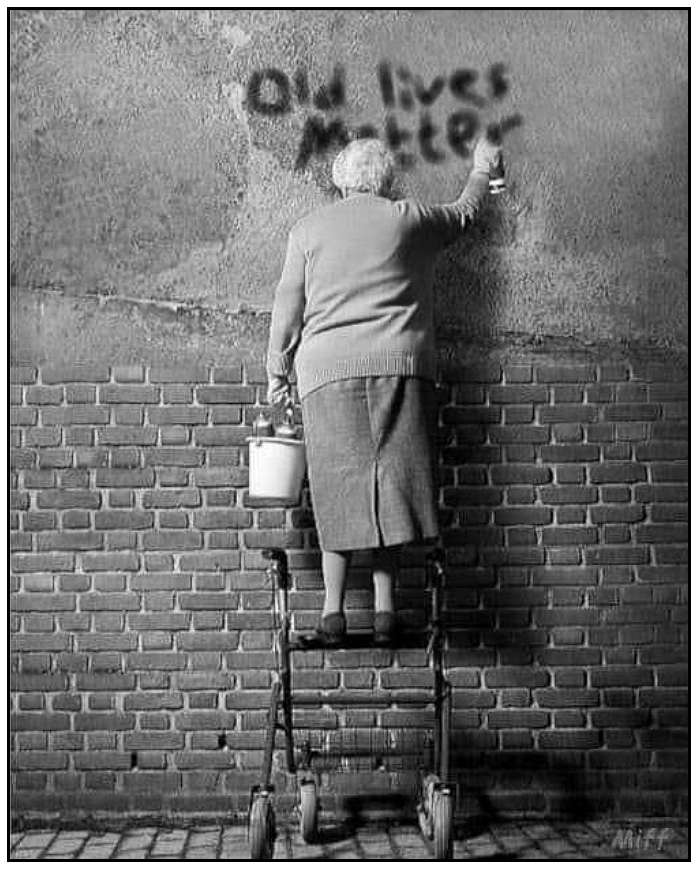
 (26 Feb.) Myah Abraham was the second oldest of nine children growing up in a conservative, Christian family – but a harrowing experience truly cemented for her the need to fight to protect every life, especially the most vulnerable.
(26 Feb.) Myah Abraham was the second oldest of nine children growing up in a conservative, Christian family – but a harrowing experience truly cemented for her the need to fight to protect every life, especially the most vulnerable. (6 Mar.) Thousands of Russian doctors, nurses and other healthcare workers have signed an open letter to President Vladimir Putin urging him to put an end to war in Ukraine.
(6 Mar.) Thousands of Russian doctors, nurses and other healthcare workers have signed an open letter to President Vladimir Putin urging him to put an end to war in Ukraine.  (9 Mar.) Police in Minsk refused to say why they and OMON riot police were present in and around the city's main Orthodox cathedral on 3 March when about 100 soldiers' mothers attended regular evening prayers to pray for peace in neighbouring Ukraine. Officers checked the identity and photographed some of them before the service. Afterwards they detained four and questioned them at Central District Police Station for four hours. Police came the following day to the home of a fifth, but she was not at home. It remains unknown if the women will face punishment. A journalist and her husband were detained at the cathedral and jailed for 15 days.
(9 Mar.) Police in Minsk refused to say why they and OMON riot police were present in and around the city's main Orthodox cathedral on 3 March when about 100 soldiers' mothers attended regular evening prayers to pray for peace in neighbouring Ukraine. Officers checked the identity and photographed some of them before the service. Afterwards they detained four and questioned them at Central District Police Station for four hours. Police came the following day to the home of a fifth, but she was not at home. It remains unknown if the women will face punishment. A journalist and her husband were detained at the cathedral and jailed for 15 days. (4 Mar.) Private equity firms are increasingly investing in services for young people with autism, intellectual and developmental disabilities with potentially troubling consequences, a new report warns. The firms, which aim to maximize profits quickly, are buying up companies in all types of behavioral services, a field that has traditionally been left to nonprofits.
(4 Mar.) Private equity firms are increasingly investing in services for young people with autism, intellectual and developmental disabilities with potentially troubling consequences, a new report warns. The firms, which aim to maximize profits quickly, are buying up companies in all types of behavioral services, a field that has traditionally been left to nonprofits. (8 Mar.) Russia's offensive in Ukraine since February 24 "is a shock to all churches,” explains Pavlo Smytsnyuk, the director of the Ecumenical Institute of Lviv, western Ukraine. "They are therefore forced into a form of creativity to cope with the crisis."
(8 Mar.) Russia's offensive in Ukraine since February 24 "is a shock to all churches,” explains Pavlo Smytsnyuk, the director of the Ecumenical Institute of Lviv, western Ukraine. "They are therefore forced into a form of creativity to cope with the crisis." (12 Jan.) Accessible tourism summit calls for global cooperation for inclusion of people with disability and recommends initiatives. The summit comes in the wake of fast return to recovery of the travel and tourism sectors, after the catastrophic effects of Covid-19 on these two sectors worldwide, to discuss the challenges facing the industry at the present time and the lessons learned from the crisis, especially with regard to tourists of determination. The summit recommended 20 measures for smooth travel for travellers of determination to face challenges faced by people of determination in terms of movement, residence and travel worldwide.
(12 Jan.) Accessible tourism summit calls for global cooperation for inclusion of people with disability and recommends initiatives. The summit comes in the wake of fast return to recovery of the travel and tourism sectors, after the catastrophic effects of Covid-19 on these two sectors worldwide, to discuss the challenges facing the industry at the present time and the lessons learned from the crisis, especially with regard to tourists of determination. The summit recommended 20 measures for smooth travel for travellers of determination to face challenges faced by people of determination in terms of movement, residence and travel worldwide. As I wrote earlier here, i
As I wrote earlier here, i This Wednesday morning, I read a text message from my youngest sister sent late Tuesday night that Russ Eaton, my brother-in-law, husband of my next-older sister Marilyn, had reposed in the Lord. Russ has crossed over to the other side. We don't see it very well because of the fog and trees, but it's there – the bridge is anchored to the other side.
This Wednesday morning, I read a text message from my youngest sister sent late Tuesday night that Russ Eaton, my brother-in-law, husband of my next-older sister Marilyn, had reposed in the Lord. Russ has crossed over to the other side. We don't see it very well because of the fog and trees, but it's there – the bridge is anchored to the other side.